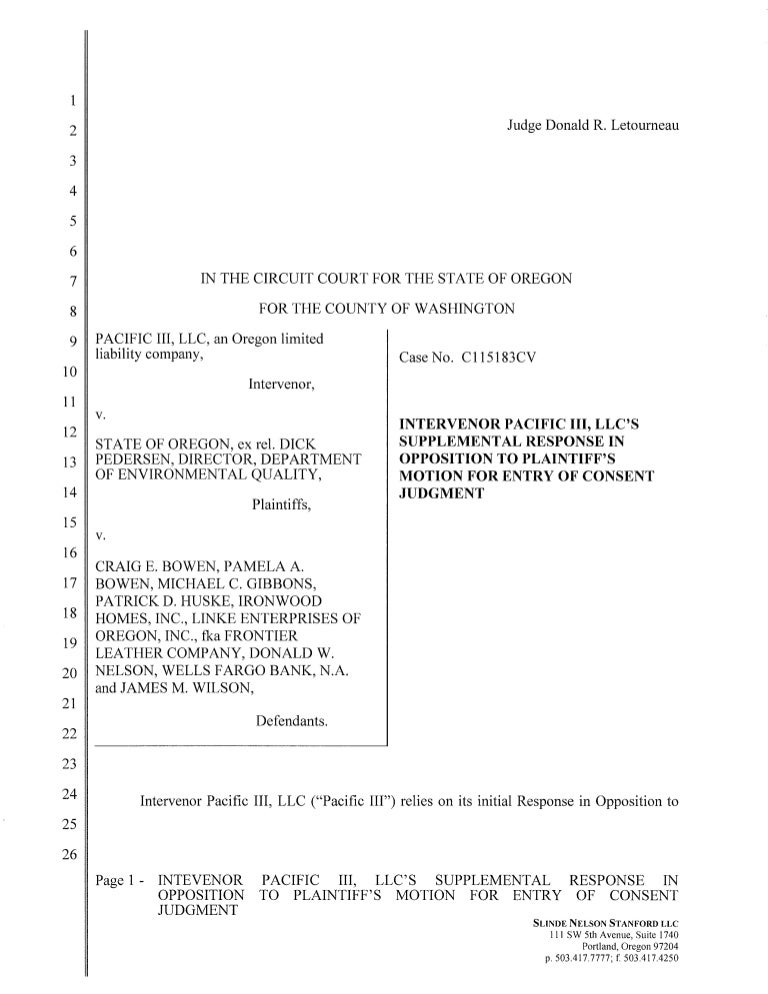

In this case, the parties in the matter in court are Edgar Lungu, Inonge Wina, Davies Chama and others on one side on the other side is Miles Sampa.

The parties agree outside court then go to court for the judge to endorse it and withdraw the case. 12 Releases means: (a) any release of hazardous substances, as defined in ORS. In general a consent decree and a consent judgment are the same. A consent order is a judgment signed by parties to a court case agreeing to end the case. (3) For the purposes of this Consent Judgment, Existing Hazardous Substance. A consent decree is a common practice when the government has sued to make a person or corporation comply with the law (improper securities practices, pollution, restraints of trade, conspiracy) or the defendant agrees to the consent decree (often not to repeat the offense) in return for the government not pursuing criminal penalties. Obviously, such a decree is almost always final and non-appealable since the parties worked it out. that a consent judgment presupposes out of court settlement reached by the parties, and that the terms of the said settlement or agreement are furnished to. It cannot be appealed unless it was based upon fraud by one of the parties (he lied about the situation), mutual mistake (both parties misunderstood the situation) or if the court does not have jurisdiction over the case or the parties. a judgment issued by a judge based on an agreement between the parties to a lawsuit to settle the matter. The CTA has also agreed not to appeal or otherwise attack the validity or enforceability of the Consent Judgment and Permanent Injunction.
CONSENT JUDGMENT TRIAL
an order of a judge based upon an agreement, almost always put in writing, between the parties to a lawsuit instead of continuing the case through trial or hearing. the Consent Judgment and Permanent Injunction, and has agreed that violation of the Consent Judgment and Permanent Injunction will expose the CTA to all penalties provided by law.


 0 kommentar(er)
0 kommentar(er)
